
Understanding Low Libido
Before we dive into the top 10 natural remedies for boosting low libido, it's essential to understand what low libido is and how it can affect your life. Libido refers to your desire for sexual activity. It's entirely normal for this desire to fluctuate. These changes can be caused by different factors such as stress, age, health, and other personal issues. However, when you consistently have little interest in sex, it can indicate a condition known as low libido. Low libido can cause significant distress and affect your relationships and quality of life.
Identifying the Causes of Low Libido
There are numerous reasons why you might be experiencing low libido. It can be a result of physical issues like low testosterone, prescription medicines, being overweight, or even chronic conditions such as diabetes. It can also be due to psychological issues like depression, stress, anxiety, or problems in your relationship. Identifying the root cause of your low libido is the first step towards finding an effective solution.
Foods That Can Boost Your Libido
Your diet plays a significant role in your sexual health. Several foods have been found to boost libido naturally. Oysters, for instance, are rich in zinc which is essential for testosterone production and healthy sperm. Dark chocolate can stimulate the production of feel-good chemicals in your brain, like serotonin, which can boost your sex drive. Other foods like bananas, avocados, and nuts can also help increase your libido.
Herbs and Supplements to Consider
There are several herbs and supplements that can help boost your libido. For instance, Fenugreek can help improve sexual arousal and desire in both men and women. Ginkgo Biloba, a popular herb for brain health, can also help with libido, particularly if your low libido is due to antidepressant medications. Maca, a root vegetable native to Peru, is another supplement that can help, especially for menopausal women experiencing a decrease in libido.
Exercise and Libido
Regular exercise can do wonders for your sexual health. Not only does it improve your physical appearance and make you feel more attractive, but it also improves blood circulation which is crucial for sexual function. Regular exercise can also boost your endurance, make you feel more energetic, decrease stress, and improve your overall mood, all of which can help increase your sex drive.
The Importance of Adequate Sleep
Getting enough sleep is crucial for your overall health, including your sexual health. Lack of sleep can lead to a rise in cortisol levels, a stress hormone that can lower your libido. It's crucial to make sure you're getting 7-9 hours of sleep per night to ensure your hormones are regulated and your libido is functioning optimally.
Mindfulness and Meditation
Practicing mindfulness and meditation can also help boost your libido. These practices can help you manage stress and anxiety, which are common causes of low libido. Mindfulness can also help you focus on the present moment and your physical sensations, which can enhance your sexual experience.
Seeking Professional Help
If natural remedies aren't enough to boost your low libido, it might be time to seek professional help. Therapists and counsellors trained in sexual health can provide techniques and strategies to help you manage your sexual concerns. In some cases, you might also need to consult a doctor or a specialist if your low libido is due to an underlying medical condition.

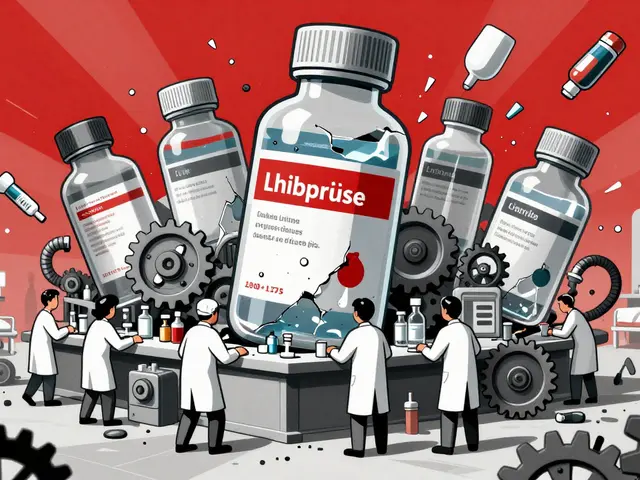
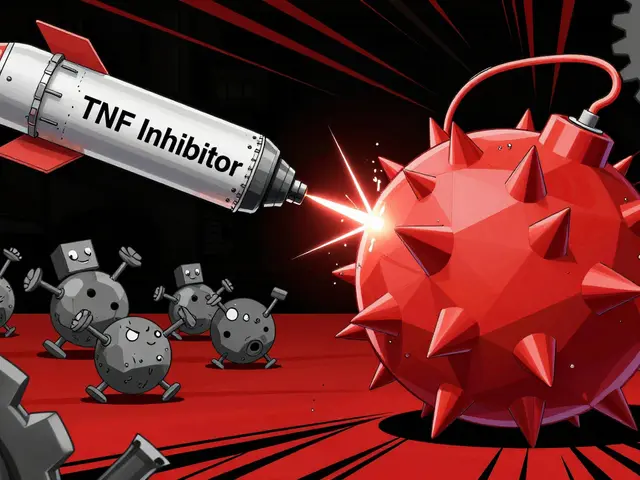

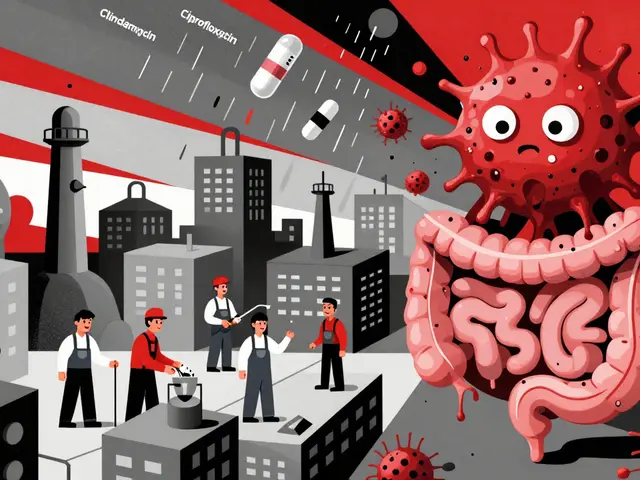
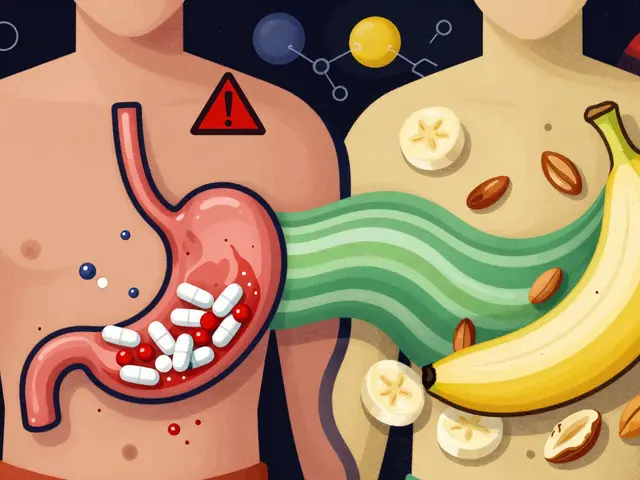


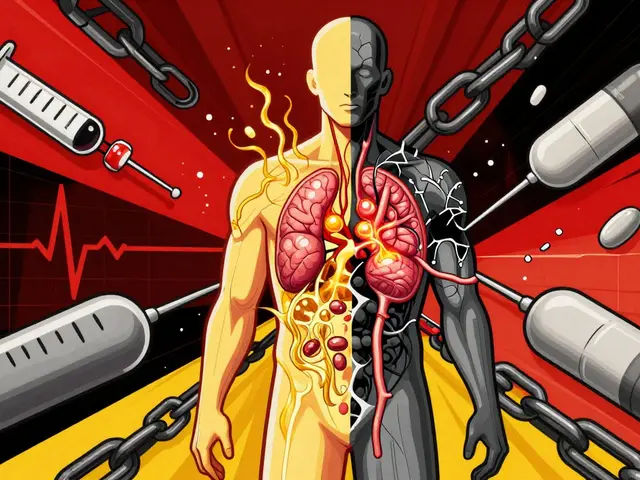
17 Comments
I've noticed that alongside the foods you listed, adaptogenic herbs like ashwagandha can help modulate cortisol, which often suppresses libido. Vitamin D deficiency is another hidden culprit; a simple blood test can reveal if you need supplementation. Also, staying hydrated improves blood flow, which is essential for sexual response. If you pair these tweaks with the diet you mentioned, the results can be synergistic.
From a clinical perspective, the integration of structured exercise regimens and balanced macro‑nutrient intake forms the cornerstone of hormonal equilibrium. Regular aerobic activity not only enhances endothelial function but also augments testosterone synthesis. Moreover, incorporating omega‑3 fatty acids-found in fatty fish such as salmon-supports the production of prostaglandins vital for sexual arousal. It is prudent to monitor sleep hygiene, aiming for a consistent 7–9 hour window, as circadian disruption can attenuate gonadal hormone release. Finally, consider periodic reassessment with a healthcare professional to tailor interventions as needed.
When confronting the pervasive malaise of diminished sexual desire, one must first acknowledge the intricate interplay between neuroendocrine pathways and psychosocial stressors. The hypothalamic‑pituitary‑gonadal axis, though often overlooked, serves as the primary conduit for testosterone regulation. A deficiency in this axis can manifest as a palpable loss of vigor, both within and beyond the bedroom. Consequently, the consumption of zinc‑rich oysters, as previously noted, can remediate suboptimal testosterone synthesis. Yet, oysters alone are insufficient; the inclusion of L‑arginine supplements may potentiate nitric oxide production, thereby enhancing vasodilation. Furthermore, the practice of mindfulness meditation has been empirically linked to reductions in cortisol, a hormone notorious for dampening libido. It is essential, however, to approach meditation with regularity, ideally in sessions exceeding ten minutes per day. In tandem, resistance training-particularly compound movements such as squats and deadlifts-stimulates anabolic hormone release, including growth hormone and testosterone. The literature suggests that progressive overload, performed thrice weekly, yields measurable increases in sexual function scores. Additionally, dietary components like quinoa and lentils provide phytoestrogens, which may subtly influence hormonal balance in women. For individuals grappling with antidepressant‑induced sexual side effects, the herb ginkgo biloba has demonstrated modest efficacy in restoring arousal. It is also advisable to evaluate thyroid function, as hypothyroidism can present with low libido among its myriad symptoms. Should any pharmacologic agents be considered, consultation with a qualified practitioner is paramount to avoid adverse interactions. Lastly, fostering open communication with one's partner cultivates emotional intimacy, a critical determinant of sexual satisfaction. In summary, a multifaceted strategy encompassing nutrition, exercise, sleep hygiene, stress management, and professional guidance offers the most robust avenue toward revitalizing desire.
Patriotic health advice: support local producers and boost your stamina! 🇺🇸
Exercise isn’t just about looking good; it pumps blood where you need it most. A quick jog or a set of push‑ups can fire up your confidence and your hormones.
Remember, the body is a temple and the mind its sanctuary 🌿. When you nurture both with gentle movement and positive thoughts, desire often returns like a sunrise after a long night. Keep experimenting and stay hopeful!
Wow,,, this post really covers a lot,,, from diet to meditation,,, it's impressive,,, I especially love the point about dark chocolate boosting serotonin,,, but remember,,, moderation is key,,, too much sugar can backfire,,, also, staying hydrated is often underestimated,,, cheers!
Take care!
Indeed, the balance between indulgence and restraint is paramount; a measured approach ensures that the physiological benefits are not negated by metabolic stress. 😊
Yo, the mRNA vibes of stress hormones can totally downregulate libido pathways, so you gotta hack that HPA axis with some adaptogens, ya know? Also, watch your macro ratio-too many carbs can spike insulin and mess with testosterone output.
Great points! Balancing macronutrients and incorporating adaptogenic herbs like rhodiola can indeed buffer the HPA response. I’d also suggest a brief interval‑training session a few times a week; the acute spikes in catecholamines often translate to heightened arousal later on. Keep iterating on what works for your body.
Know that low libido can be a sign of underlying issues, so a check‑up is wise.
The self‑diagnosis approach is fraught with bias; a systematic endocrine panel, including free testosterone and SHBG, provides objective data, thereby circumventing anecdotal conjecture. Moreover, integrating psychosexual therapy can address cognitive distortions that perpetuate desire deficits.
Listen up! If you think a handful of nuts will solve the problem, you’re kidding yourself-real change demands discipline, sacrifice, and relentless hustle! 💪🔥
Totally get the hype but remember balance matters keep it real and don’t overdo it
Ah, the age‑old quest for vitality-a modern echo of Aristotelian eudaimonia, yet many chase shortcuts without understanding the ontological underpinnings of desire 😊. One must align body, mind, and spirit to truly rekindle the spark.
The post offers useful suggestions but lacks depth on hormonal diagnostics; a brief mention of lab assessments would enhance its practicality.
The interplay between chronic stress, circadian disruption, and neuroendocrine suppression creates a feedback loop that can erode libido over time; addressing each component-through consistent sleep schedules, stress‑reduction techniques, and targeted nutritional interventions-offers a comprehensive strategy that aligns physiological processes with psychological wellbeing; ultimately, such an integrative approach acknowledges the complexity of human sexuality while providing actionable steps toward restoration